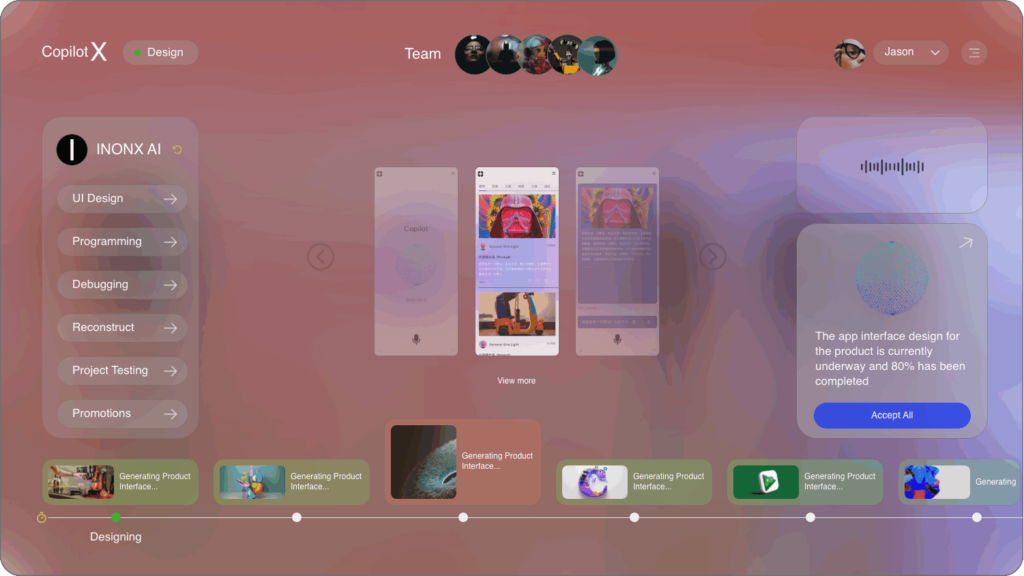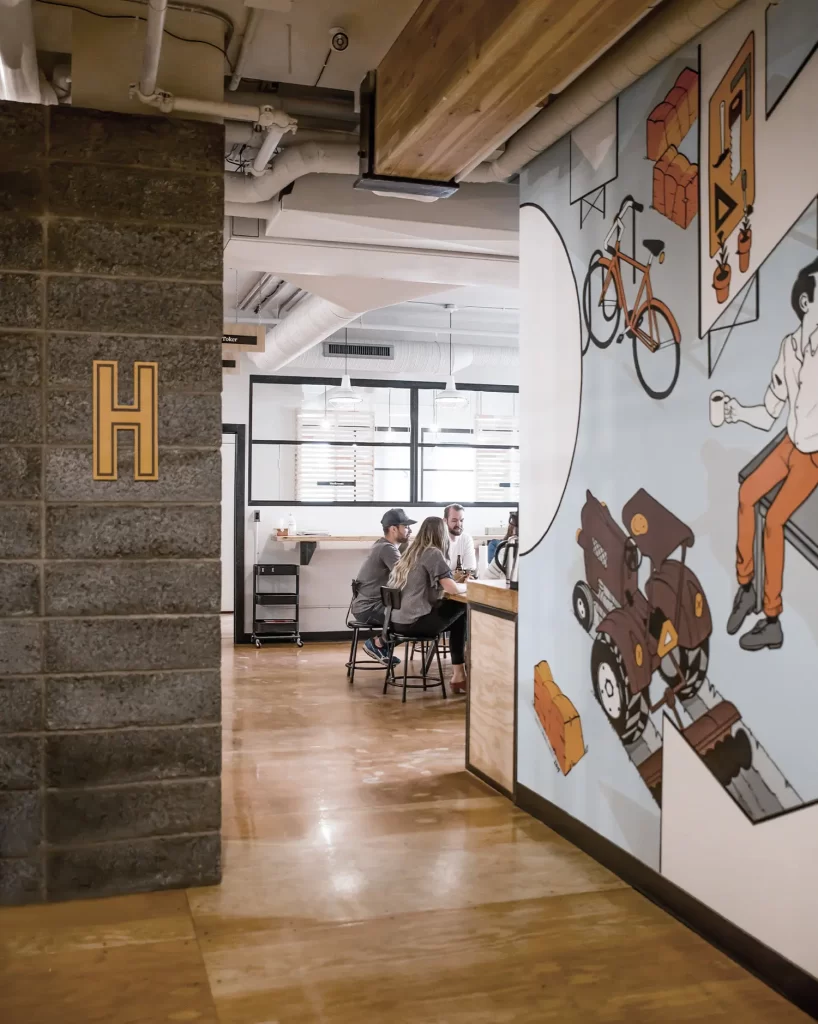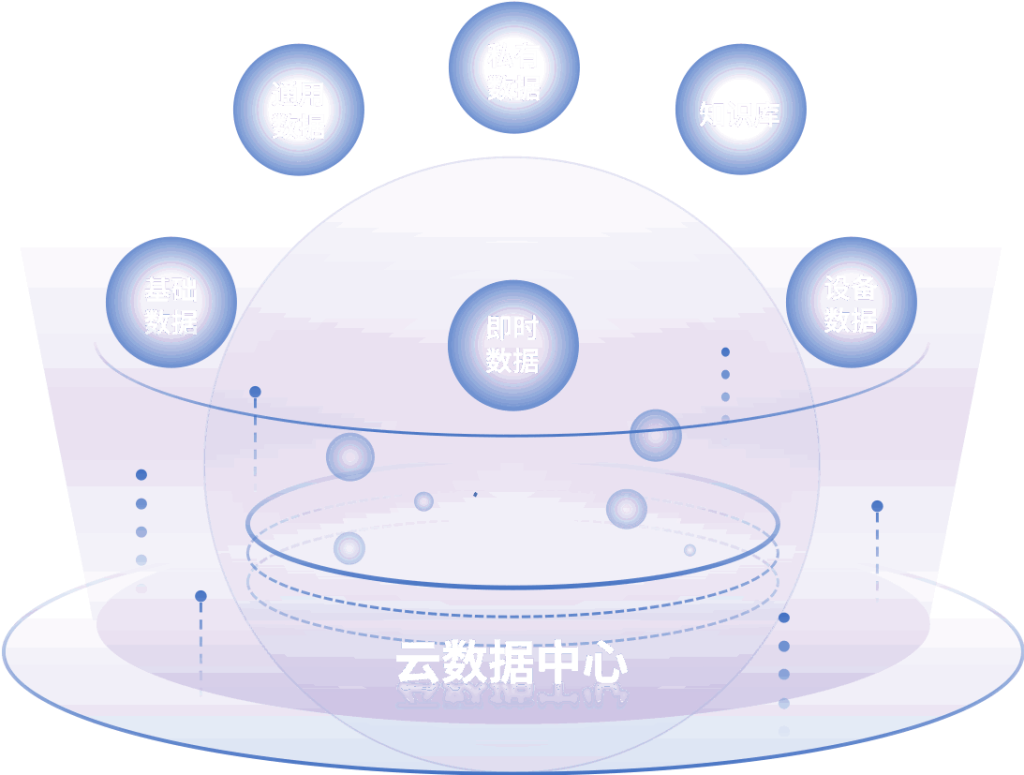The field of Artificial Intelligence (AI) continues to witness a rapid evolution, with new advancements making waves across various sectors. From automating project management to enhancing business strategies and revolutionizing manufacturing through robotic machining, AI is shaping the future of work and industry practices. Let’s explore the latest trends and breakthroughs within these critical areas, reflecting on how they are carving pathways for more efficient and effective operations.
.
**Automated Project Management: A Game Changer for Businesses**
Project management has long been viewed as a labor-intensive process requiring close coordination and oversight. However, recent advancements in AI have facilitated automated project management tools that streamline operations and enhance productivity. These tools employ sophisticated algorithms and machine learning techniques to improve scheduling, resource allocation, and risk management.
.
One of the more notable developments in this space is the integration of AI with project management software. Companies like Monday.com and Asana have begun incorporating AI functionalities that analyze historical project data to predict possible bottlenecks and suggest optimal timelines. By offering predictive analytics, these tools can help project managers make informed decisions, allocate resources more effectively, and improve overall project outcomes.
.
Moreover, AI-driven project management systems are not confined to scheduling and logistics. Natural Language Processing (NLP) capabilities are being integrated to facilitate communication among team members. Chatbots and AI assistants can assist in real-time messaging, handling queries, and distributing updates, thereby increasing overall collaboration and reducing misunderstandings.
.
The use of AI in automating project management is particularly beneficial in industries with complex, multiple-task projects. For instance, in construction and infrastructure development, AI systems can analyze risk profiles and provide predictive insights that can greatly reduce delays and cost overruns. Furthermore, the automation of routine tasks allows project managers to focus on strategic planning and relationship management, which are crucial for successful project execution.
.
**AI-Powered Business Strategies: The Future of Competitive Advantage**
As businesses navigate a rapidly changing environment, AI-powered business strategies have emerged as a fundamental tool for maintaining competitive advantage. Organizations are now employing AI to analyze massive datasets, extracting valuable insights that inform decision-making.
.
Eightfold AI, a company specializing in talent management solutions, exemplifies how AI can transform HR strategies. By leveraging machine learning algorithms, Eightfold AI assists enterprises in identifying candidates whose skills match the organization’s current and future needs. This capability not only enhances recruitment efficiency but also promotes diversity in hiring practices.
.
Additionally, AI can optimize supply chains and inventory management. Companies like Amazon and Walmart are already utilizing advanced AI systems to forecast demand and manage logistics. By analyzing consumer behavior and market trends, these systems can optimize stock levels, minimize waste, and maximize sales opportunities. Moreover, AI’s ability to adapt to changing conditions in real time significantly improves the resilience of supply chains, particularly in today’s volatile markets.
.
In the realm of marketing, AI-driven analytics tools are revolutionizing how companies understand and engage their customers. Businesses are increasingly adopting AI to create personalized customer experiences, tailoring content and interactions to match individual preferences. Services like Adobe Experience Cloud harness AI to analyze user behavior, facilitating targeted advertising that improves engagement and conversion rates.
.
Overall, the integration of AI into business strategies not only increases operational efficiency but also fosters innovation by enabling companies to adapt swiftly to changing market dynamics. As AI technologies continue to advance, businesses that leverage these solutions will be better positioned to secure their competitive edge in the market.
.
**Robotic Machining: The Future of Manufacturing**
The manufacturing industry stands as one of the sectors most profoundly affected by AI innovation, particularly in robotic machining. The integration of AI into robotic systems has led to increased precision, efficiency, and flexibility in production processes.
.
Robotic machining involves the use of robotics to perform machining processes such as milling, turning, and grinding. Companies are now employing AI algorithms to enhance these robotic systems, allowing them to learn from their environments and make adjustments on the fly. For instance, a robotic arm equipped with AI can optimize its movements and processes based on real-time feedback from sensors, significantly improving production speed and accuracy.
.
A noteworthy example of this advancement can be seen in the collaboration between Siemens and KUKA, a leading manufacturer of industrial robots. Their partnership has resulted in the development of AI-powered robotic systems that can autonomously adapt to various machining tasks, accommodating different material types and project specifications without human intervention. This flexibility not only reduces downtime but also optimizes resource utilization.
.
Moreover, AI-driven robotic machining systems contribute to enhanced safety and reduced human error in manufacturing environments. By automating processes that are traditionally performed by human operators, companies can minimize workplace accidents, improve working conditions, and ensure consistent quality in production. As these systems become more sophisticated, they also allow for more complex designs and applications, expanding the horizons of what can be achieved in manufacturing.
.
Finally, the rise of Industry 4.0—a term that refers to the digital transformation of manufacturing through technologies like AI, IoT, and cloud computing—highlights the importance of integrating AI into robotic machining. As businesses increasingly utilize smart factories, AI’s role in processing vast amounts of data generated from connected devices will be crucial for optimizing operations and advancing overall productivity.
.
**Conclusion: The Future of AI in Various Sectors**
As AI continues to mature and penetrate deeper into various industries, its impact on project management, business strategies, and manufacturing cannot be overstated. Automated project management tools streamline operations, AI-powered business strategies enhance decision-making and customer engagement, while robotic machining revolutionizes the manufacturing landscape, improving precision and efficiency.
.
The developments discussed in this article are just a glimpse of the transformative power of AI. As organizations embrace these technologies, they lay the groundwork for a future defined by innovation, efficiency, and competitive advantage. The ability to adapt and integrate AI into existing processes will be a key determinant of success for businesses navigating the complexities of the modern landscape.
.
**Sources:**
1. “Automated Project Management: How AI is Transforming Workflows” – ProjectManagement.com
2. “The Rise of AI-Powered Business Strategies” – Harvard Business Review
3. “AI in Manufacturing: Robotic Machining and the Future of Industry” – IndustryWeek
4. “Leveraging AI for Efficient Project Management” – Forbes Tech
5. “AI-Powered Analytics: A New Era for Business Strategies” – McKinsey & Company



























